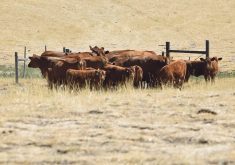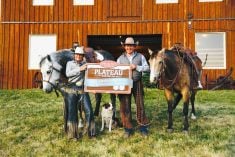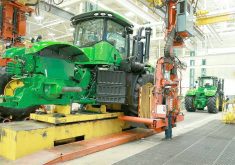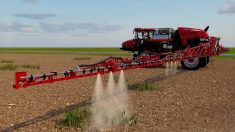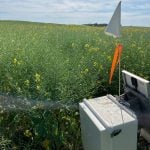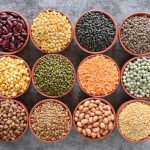We use our off-farm income to maintain a quality of life that is important to us. The income is not earmarked to subsidize the farm but to enjoy it. Working off the farm becomes our perfect hedge.
There has always been a lot of stigma attached to the idea of working off the farm. The discussion usually starts with a complaint that one or both partners need to work off the farm – to make the farm work.
My parents still work full-time on their farm. There were exceptional providers who never entertained the idea of working off the farm to support it. They simply found ways to make it work. Sometimes, we simply went without until the financial hardship had passed. Looking at it now, it was both courageous and innovative for both of them to build a successful farm and still carry out their commitments to their children, their community and their church strictly from farming income. Although I have always been an active owner in our ranch and most certainly in the beef business, I have also been self-employed and enjoyed income that was not derived directly from the farm. Because my office is in our home, I can manage both quite nicely. My husband works away and like many others, used to feel a negative vibe that seems to come with working away from a working farm.
Read Also
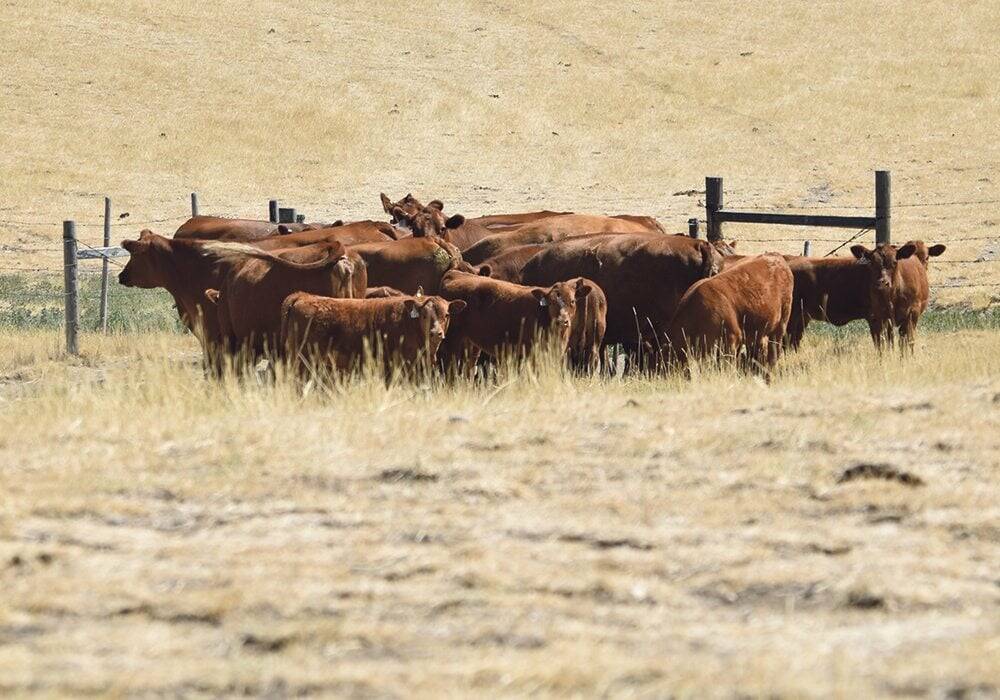
Canadian cattle industry has wins to shout about
Canada’s cattle management has become more efficient, more humane and more knowledgeable, but industry terms may not resonate with the general public
After much discussion on the subject, we have taken quite a different view. In all things agricultural, there are inherent risks. Mitigating and managing those risks becomes a very important part of a sound business plan. If we reverse our thinking to include off-farm income as part of the risk-management portfolio, it suddenly makes sense. Rather than look at working off the farm as a bad thing, we now look at it from a business perspective and we appreciate that we can use the off-farm income to mitigate the risks on the farm.
It all depends how you look at it. We use our off-farm income to maintain a quality of life that is important to us. The income is not earmarked to subsidize the farm but to enjoy it. Working off the farm becomes our perfect hedge.
Not for everyone
This does not mean that working off the farm is a blanket solution. And most certainly, we are not to judge our fellow farmers because of their choices. But it does help if we find the positive in our daily lives. Working off-farm gives us exposure to other people and ideas; it broadens our scope and perspective on life. And for some, it is an escape from the pressure of the farm and I mean that in an honest way. Even in the most successful farming families there are participants who just want to work out or wish to continue in their professional career.
Those trades and careers are important and like a personal principle, cannot be taken away from you. It is so important that young people have an education that allows them to be independent. It makes for better decision-making when deciding to go into self-driven production agriculture or to return to the farm. There is no better training than sliding up and down a balance sheet. That is why we need to encourage our new entrants to look at the business end of farming long before the shopping trip at the local tractor mart.
We put a lot of pressure on ourselves. There is no other business where each family member wears so many different hats. As an opposing analogy, the restaurant owner does not try to grow the ingredients, build the tables, make the ice cream and generate his own electricity. Instead, the owner is hard-wired into a host of trades and professions that support the delivery of food to the table. And although farmers are continuously asked to do more, some may be the happiest doing what they do best and working off the farm to generate income.
Regardless of their choices, be that to do it all or simply stick to the knitting, we must recognize that they are attempting to do something very positive, and that is to mitigate risk as they see it. Enjoy your work and stamp out the stigma of working off farm by looking at it as part of a sound business and risk-management plan.
Brenda Schoepp is a market analyst and the owner and author of Beeflink, a national beef-cattle market newsletter. A professional speaker and industry market and research consultant, she ranches near Rimbey. [email protected]



